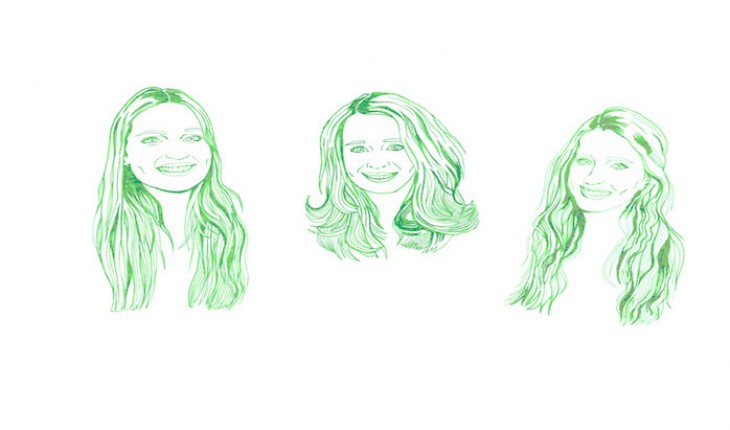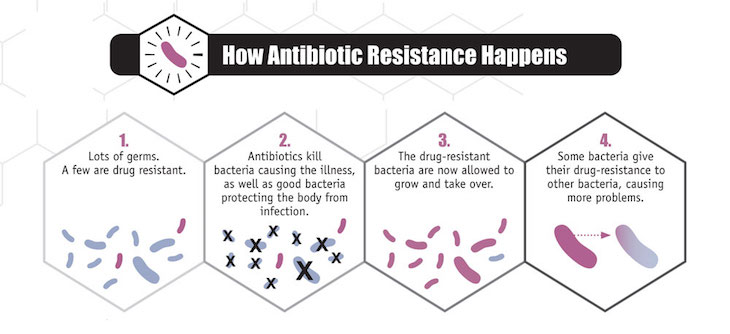Ah, that feeling of headaches, high temperature, a rapid heart-rate and disorientation. All signs telling us that it’s probably time to pop down to the doctor and grab some antibiotics to help cure us of whatever infection may have got through our immune defences.
But, what if we couldn’t do this? What if upon contracting an infection our only option was to sit and wait for recovery… or not?
A quote from Alexander Fleming’s Nobel Prize acceptance speech: ‘It is not difficult to make microbes resistant to penicillin in the laboratory by exposing them to concentrations not sufficient to kill them, and the same thing has occasionally happened in the body’
Antimicrobial resistance (AMR) is a phenomenon that is becoming one of the biggest global issues that faces modern medicine. Antibiotics underpin so many of the treatments that are used in modern medicine today – such as a patient receiving chemotherapy, who will rely on antibiotics to treat mild bacterial infections due to a severely weakened immune system.
Medicine as we know it would be impossible if we were unable to treat bacterial infections… Plunging us back into the Dark Ages.
A few weeks ago I was lucky enough to attend a lecture given by Dame Sally Davis, Chief Medical Officer for England, who came to speak to us not only about her illustrious career, but also the frankly terrifying problem of AMR. For many years now there has been a huge void in the discovery of new antibiotics with the most recent being discovered in 1987. This has meant that over time bacteria with resistance to certain antibiotics have been able to pass these genes on, resulting in certain strains becoming resistant.
Moreover, antibiotics are not only used for the treatment of infections in humans – 70 per cent of antibiotics go into animal foods and it is practices such as this that have significantly contributed to the spread of antibiotic resistance.
Something has got to be done – and fast. If not, by 2050 the cost of mortality from AMR to the NHS will be greater than that of cancer – around £10 million according to Dame Sally. There are, however, many challenges surrounding this topic.
A GP in the audience raised an issue that I had actually not considered before. He spoke about how patients often came to the GP to request antibiotics despite there being no need. He said as a GP it was often difficult to deny patients the treatment they want because it means that the patient satisfactory record of the practice falls and it is important to keep these as high as possible. He mentioned that it was also difficult for him on a human level – people come to the GP not feeling well and there are cases when even though the drug will have no effect it will make a patient feel better.
Another challenge, and one of the most important in my opinion, is the need to modernise diagnostics. I remember on a ski trip to France attending the doctor about a tonsil infection I was suffering from. The French GP just looked at me, took a sample from my tonsil and within five minutes could confirm to me that the tonsil infection was viral and told me to go away and rest. Why on earth do we not have that kind of technology in place in the UK? Surely it would reassure patients that there was no need for antibiotics because a machine can’t err on the side of caution?
Another challenge to the scientific community is that there has been huge disinvestment in the discovery of antibiotics over the years. Surely this will have to result in a switch to vaccination as a method of preventing these diseases? Will a patient undergoing a planned operation need to receive vaccinations in advance to protect them against common bacterial infections that would otherwise be treated with antibiotics? This presents challenges in itself – many people take a vehement anti-vaccine stance, although this is not to mention the problem of actually developing vaccinations…
The issues described here barely scratch the surface of tackling AMR, with global economic issues being another critical factor. Dame Sally is really plugging to raise awareness of AMR and I can only hope that people stand up and listen.
- Next generation dreaming - 11th July 2016
- So what’s your next move? - 20th April 2016
- Mind over Matter? - 29th March 2016







